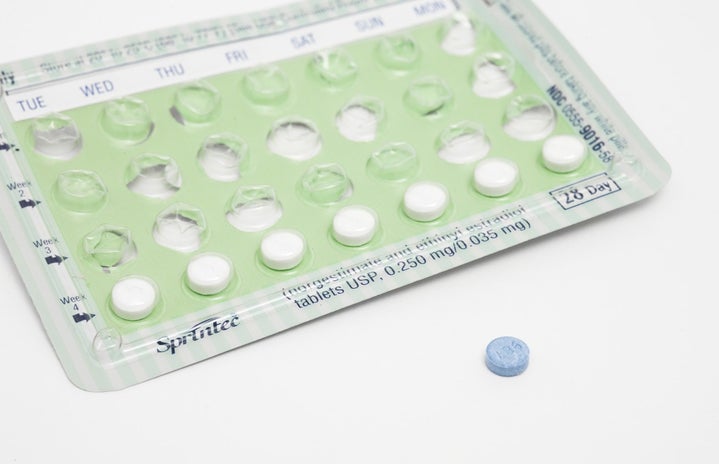Sex is something that has been talked about more and more in media spaces, especially with the rise of fourth wave feminism and its emphasis on being sexually liberated. In my opinion, it’s healthy for sex to be talked about with candor and in dialogues with people of multiple genders, as men and women will have different experiences when relating to these topics. Not talking about something that is normal only allows more opportunities for people to have risky sex, unsafe sex, or to be put in a situation they aren’t comfortable with due to being uninformed.
I didn’t have sex ed growing up, and learned mostly through books and other friend’s experiences. Now that the internet is a beacon of free educational wealth, I figured I’d pitch in my two cents and write some informative articles on questions twenty-somethings have about sex. Some of these answers will be from my own experiences and personal opinions, and others will be more research based with links attached to support any evidences needed.
By no means am I a sex expert or an educator, so keep this in mind when reading my answers! Sex education is more of a topic that I think is important and have an interest in furthering my learning on. Without further ado, below are some topics I received to write about and my answers.
-
Does sex experience matter? Especially in the context of initially entering a new relationship.
If you are dating someone who cares about you beyond sex, it shouldn’t be a problem. It’s easy to compare ourselves to others, but if you are with someone who genuinely wants to be with you, it isn’t a big deal if you’re not in on any crazy moves or don’t really know how to give head. Whether you have more experience than your partner or less, make sure that there’s a space where you can talk about this and they can address whatever your concerns are. If you’re feeling insecure, remember it’s always an option to keep your “body count” to yourself and it isn’t something you should be judged on! Also, it can be a fun experience to have one partner teach the other, it’s definitely less of a burden than one would imagine.
-
Talk about not having sex.
I’ll probably write a whole article about this because I stopped having sex completely after I went through a bad breakup where the relationship heavily revolved around sex. I think in the feminist, sex positive circles I inhabit it’s less common to talk about abstaining from sex but it’s equally as important to feminism as being sexually active, since it’s a choice in itself that also needs to be supported, challenges rape culture, and is looked down upon by peers in adolescence and young adulthood, i.e. people getting made fun of for being virgins.
Taking a break from hookups is a form of self care that takes a lot of reflection, especially if you’re used to having a high-drive-libido sex life. I realized I wasn’t having hookups because they were fun but I was doing it to fill the void that was leftover from my past relationships. I wasn’t having sex for me, which was the whole point of sex positivity in the first place. Once I listened to my body and decided to take a break, it became very clear that I didn’t even want anybody to be touching me in that way at all. This time to heal from heartbreak and reflect opened up other areas of my life that needed work as well, from my relationship towards seeking approval from men, to really accepting and thriving in my queerness. Now I feel like whenever I decide to break my celibate streak, it’ll be a decision that’s entirely for me and benefits my own well being instead of being a coping mechanism to get over other issues.
As for abstaining from sex not because of self care but because the opportunity just hasn’t come up yet, this is a lot more common than you’d think. It might seem like everyone around you is getting into relationships and having one-night stands, but I can guarantee you that there’s at least four other people you know who haven’t had sex yet. A lot of the times people keep this to themselves, and don’t like to talk about it because there isn’t the space to. Waiting until you’re comfortable enough with your body or another person to have sex is something that you’re doing for yourself and that’s important. Deciding to have a hookup with a stranger on a random day is also totally fine. The concept of “virginity” is made up, and this applies to people of all genders. Especially with groups such as incels becoming more popular, it’s important to talk about sex and lack thereof as something normal that isn’t just a check mark into becoming a man, or a factor that defines a person’s romantic appeal.
-
Queer sex!
Queer sex is unfortunately left as the last wheel of the bandwagon in contemporary sex ed. If sex ed is given at all, it’s unlikely to be lgtbq+ inclusive or even mention non-penetrative sex at all. It’s so important to talk about and unfortunately I, as queer woman who has not been educated in queer sex am pretty uninformed. Fortunately, this question gives me the opportunity to learn! I’ve linked some resources I found in my research to address this subject as well as enlighten myself for my own good.
**A presentation by Queer Sex Ed which is a group that seeks to teach others about the importance of queer sex ed. This powerpoint outlines a few major topics relating to gender, sexuality and identity that are not only of important in sex ed but also in understanding and accepting queerness overall.
**Here is an INCREDIBLE website i stumbled upon that has in depth, visual friendly and inclusive articles on sex, STI’s, and emotions related to sex. While it doesn’t specifically target the lgbtq+ community, this piece on barriers explains staying risk-free in a non-gendered, friendly way towards all types of partnerships. This article specifically explains how to stay safe during sex between people with vulvas.
Below are my main takeaways, that are elaborated within the articles above:
-
Sex toys, like people’s bodies, can also carry, harbor and transmit pathogens.
-
An inside condom can be put in in advance of sexual activity, making it great for those who feel like outside condoms are an interruption
-
While manual sex poses far less risk of infection than intercourse or oral sex do, and handwashing does a great job by itself at reducing risks, gloves and finger cots still have some good things to offer.
-
“It’s also worth noting that oral sex isn’t the only way that one person with a vulva can transmit an STI to another person with a vulva. Manual sex — one partner stimulating the other partner’s vulva with her hands — can transmit STIs, too.”
** This Trans Youth Sexual Booklet was recommended by the Trevor Project (the Trevor Project link leads to a site where there’s information on sex, coming out, and mental wellness for all aspects of the lgbtq+ family). Below are some of my takeaways from the pamphlet, but i suggest reading it not only for those who identify as trans but also our cis readers to educate ourselves and understand the complexities of transitioning and its sex and health related implications.
-
“How you identify doesn’t need to have any bearing on how you have sex. Have sex however feels good for you, not how you think you should.
-
Testosterone is likely to increase your sex drive (libido) which may affect how often you want to have sex.
-
Testosterone and estrogen do not act as contraceptives. Estrogen may change the amount and quality of ejaculation but it will still contain sperm.”


